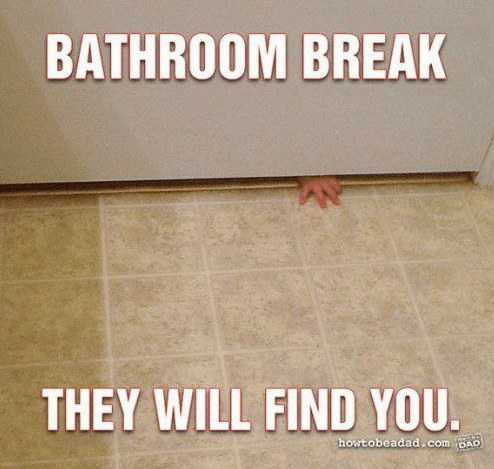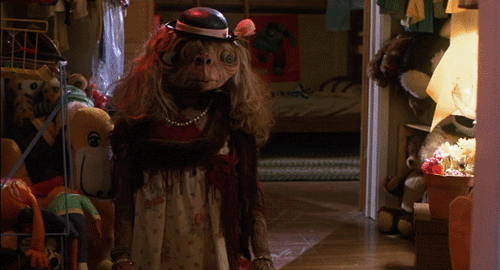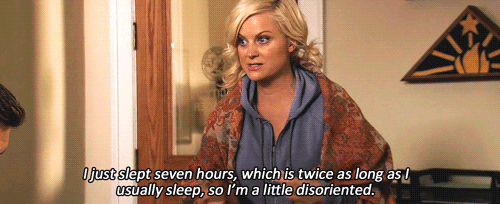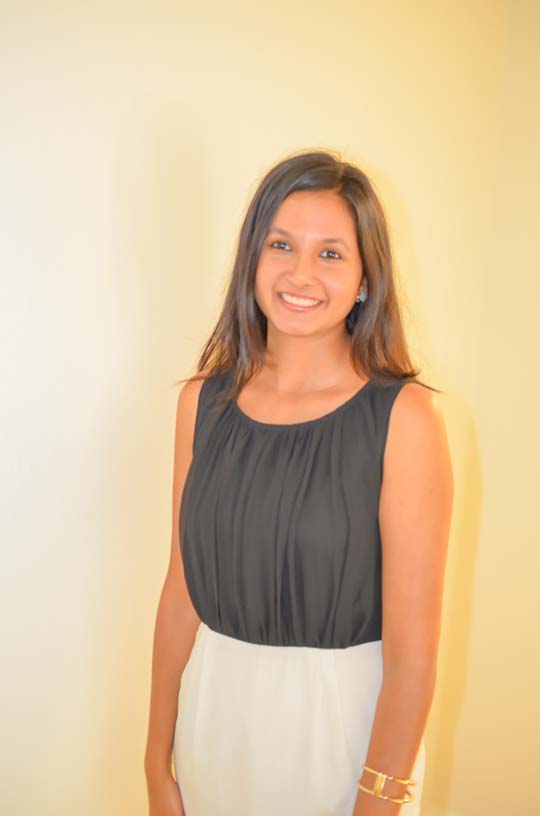by Aditi Narayanan – Follow @Aditi_narayanan
Do you spend more time whipping up four course meals for your baby than sleeping? Have you been told that your child looks ‘weak’ and you should add ghee in everything you feed them? Welcome to the world of brown moms. There are things we need like a regular caffeine fix. And then there are things we really don’t and here is a list of the top ten:
1. Nursing cover/washcloth
Brown moms have something in their wardrobe that not only covers their modesty while nursing, but also the very presence of the baby, it’s called a shalwar kameez. This outfit when worn with a dupatta is the ideal accessory that doubles up as a washcloth/burp cloth.`
 [Source: Giphy ]
[Source: Giphy ]
2. Diaper bag
When brown moms go out, it’s mostly like this:
 [Source: ScoopWhoop]
[Source: ScoopWhoop]
You will have an entourage of escorts including dad, your mom and dad, dad’s mom and dad, to name a few. There are enough handbags, pockets and hands with which to fill your diaper bag contents. So go ahead, drop some baggage off your baby registry by giving this bulky item a pass.
[Read More: Mom on a Mission: Reframing the ‘Mom Guilt’ Conversation]
3. Me time
What’s all this fuss about me-time? Why do you need time to eat when you can just do this and save on those calories:
 [Source: theodysseyonline]
[Source: theodysseyonline]
Why catch up on Game of Thrones when you will inadvertently listen to some spoilers during the next conversation you have with adults? Why wax your eyebrows when it’s your only chance to look like Sofia Vergara? And hey, if you think you need to exercise, you’re obviously not spending enough time holding/rocking the baby and miserably failing at being a mother.
4. Crib
Co-sleeping is the only way to sleep if you’re a brown mom. Buying a crib is akin to abandoning your child in this cold thankless world, even if it guarantees better sleep for both you and the baby. In fact, with some kids (like mine), if they aren’t sleeping ON you, they aren’t sleeping at all.
However, they have been found to be useful as parking places for baby’s toys, clothes, books and other things that they seem to quickly outgrow.
5. Stroller and bouncer
You spend days researching for the safest and sturdiest stroller and bouncer. You bring it home and ceremoniously unravel it to your baby and he welcomes it with a loud shriek. Babies are smart, they figure why sit in this cold alien contraption, when I have a perfectly healthy and mobile mommy to perch on? All the smiling happy babies that seem to gleefully bounce themselves to sleep are only found on product covers, not in real life.
[Read More: 7 Simple Ways to Raise a Confident Child ]
6. Advice
We South Asians have only one fatal flaw and that is caring too much. We care about our neighbors, their aunts, their cats’ aunts, everyone. So, when we see an opportunity to enrich others’ lives, we give advice, very generously.
7. Privacy
Privacy is overrated. When you have a kid, you know that the whole world will visit you, as you know joy shared is multiplied many times over. Expect to have an audience when you nurse, and have the pleasure of meeting a lot of closet lactation experts.
And when he starts crawling/walking, prepare yourself for this:
 [Source: howtobeadad.com]
[Source: howtobeadad.com]
8. New clothes
Why do you need new clothes when you can just wear your husband’s old shirts and your mom’s old kurtas till you’re back in shape? And if that never happens, just wear them anyway and claim you’re trying to bring oversized clothes back in fashion.
The good news is it doesn’t matter what you wear, because mostly, this is how you feel:
 [Source: Buzzfeed]
[Source: Buzzfeed]
9. Sleep
National sleep foundation recommends adults get seven to nine hours of sleep per day. But as a new mom aren’t you getting more than your ample share as you sleep when the baby sleeps? In fact, if anything you probably oversleep if you count the fourteen hours the baby sleeps, the snooze time between pumping sessions, and the open-eye-sleep time during adult conversations.
 [Source: thegirlinmotion.com]
[Source: thegirlinmotion.com]
10. Bathtub
Why do brown moms need a bathtub with a fancy insert for newborns to lounge in, when they have something freely available in every household – the sink. It gets cleaned everyday (hopefully), and the best part is you will never accidentally flood the whole house by opening the rubber stopper. And when your babies grow older, just plonk them down in something available in every quintessential brown household – the bucket.
I’m sure there are many more, and I would love to hear from all our lovely readers what they thought was unnecessary in their experience. Let us know in the comments below.
 Aditi Narayanan wears multiple hats (sometimes literally) of content marketer, writer, and mommy to a delightful one year old. To follow her many rants, check out @Aditi_narayanan.
Aditi Narayanan wears multiple hats (sometimes literally) of content marketer, writer, and mommy to a delightful one year old. To follow her many rants, check out @Aditi_narayanan.




